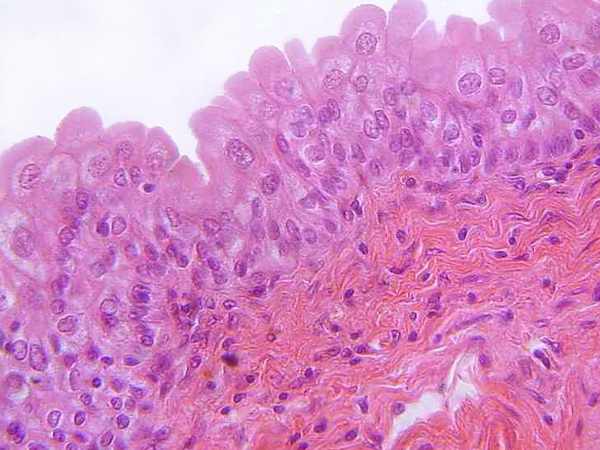Treating a Rare Cancer with a Chemotherapy Gel
The FDA has approved a chemotherapy gel for treating certain patients with cancer of the upper urinary tract.

he U.S. Food and Drug Administration (FDA) has approved a chemotherapy gel called Jelmyto for treating patients with low-grade upper tract urothelial cancer.
Urothelial cancer arises in cells called urothelial cells. These cells line the urethra, bladder, ureters, renal pelvis, and some other organs. Most urothelial cancers occur in the bladder, but some occur in the ureters, which are the tubes that connect the kidneys to the bladder, and the renal pelvis, which is the very top part of the ureters. These cancers are collectively referred to as upper tract urothelial cancers.
One of the main factors affecting outcomes for patients with upper tract urothelial cancer is the grade of the tumor. Low-grade upper tract urothelial cancers are usually not invasive and do not spread outside the ureter or kidney.
Low-grade upper tract urothelial cancer is a rare type of cancer. In the United States, there are 6,000 to 8,000 new patients diagnosed with the disease each year, according to the FDA. Most patients are treated through surgery.
Jelmyto provides a new, minimally invasive chemotherapy approach to treating low-grade upper tract urothelial cancer.
Due to substantial treatment challenges associated with the complex anatomy of the upper urinary tract, many patients need to be treated with radical surgery – usually complete removal of the affected kidney, ureter and bladder cuff. Jelmyto gives patients, for the first time, an alternative treatment option for low-grade UTUC,” said Richard Pazdur, MD, director of the FDA’s Oncology Center of Excellence, in a statement.
Jelmyto is a novel formulation of the cytotoxic chemotherapeutic mitomycin, which is approved in alterative formulations for treating certain patients with either stomach cancer or pancreatic cancer. In Jelmyto, the mitomycin is delivered to the tumor in a reverse thermal hydrogel that is given to patients using a ureteral catheter or nephrostomy tube. The Jelmyto is chilled at the time of administration and slowly becomes liquid as it warms up over the course of several hours before being excreted in the urine.
The approval of Jelmyto was based on results from the phase III OLYMPUS clinical trial, according to the FDA. The trial is ongoing. Current data from the trial show that 41 of 71 patients (58 percent) had complete tumor shrinkage following six treatments of Jelmyto administered weekly. Among these patients, 19 continued to have complete tumor shrinkage after 12 months, nine had not yet been followed for 12 months, and the rest had disease recurrence.
The FDA approval was rendered on April 15, 2020.
